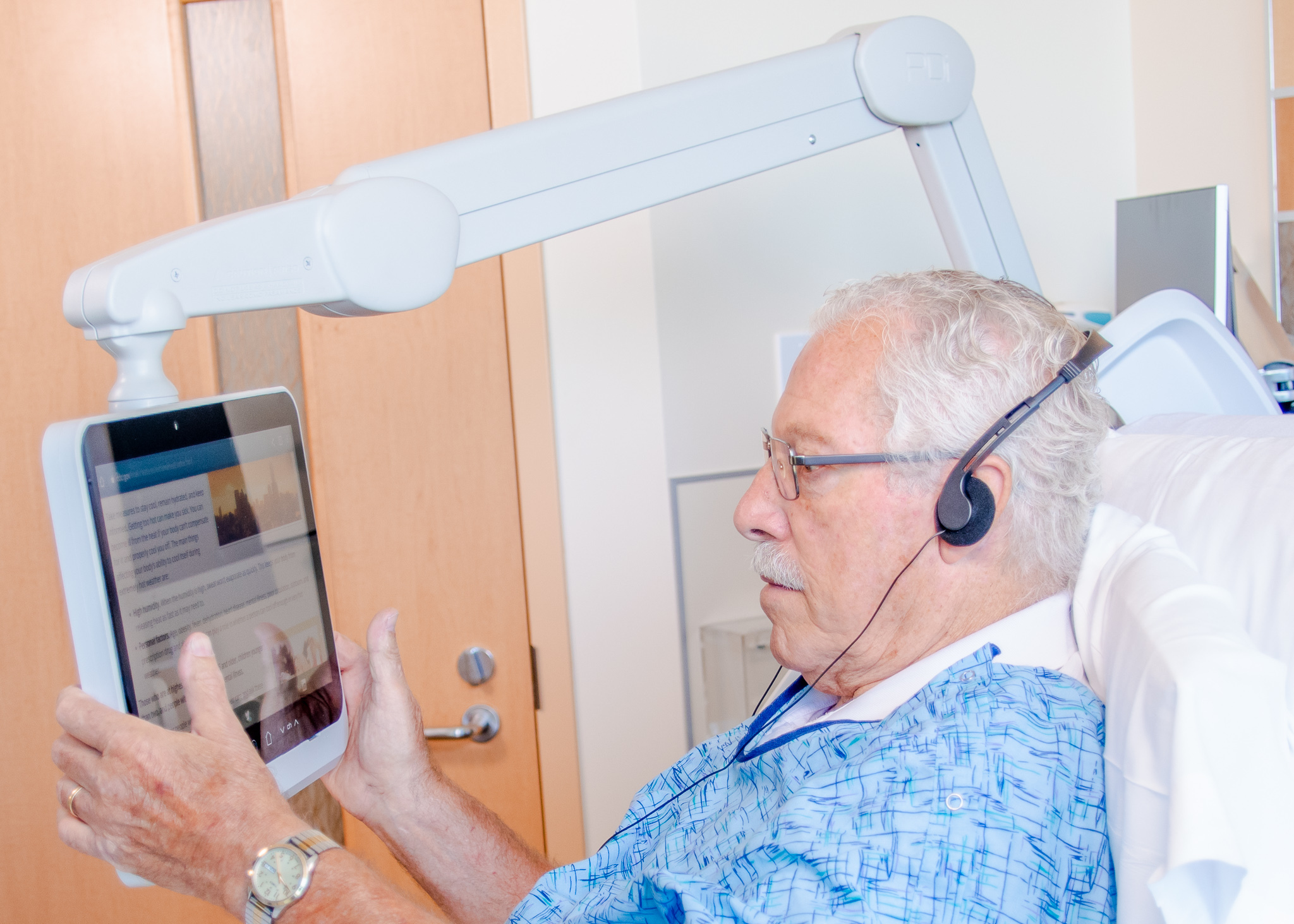3 Best Practices for Hospital Fall Prevention
In recognizing the risks associated with patient falls and the potential for severe injuries, hospitals play a pivotal role in ensuring patient...
2 min read
Kayleigh DeLaet
:
June 6, 2023

Memory disorders pose complex challenges for patients and their caregivers. But amidst the struggles, there's a powerful ally that can make a meaningful difference and enhance quality of life for patients: music. In recent years, music therapy has emerged as a valuable tool in alleviating symptoms of dementia.
In this blog post, we'll explore the top benefits of music therapy and shed light on how it can profoundly impact the lives of those living with dementia.

According to the Cleveland Clinic, music therapy is a clinical approach that utilizes music to achieve individual goals under the guidance of a licensed music therapist. The effects of music on the brain are well-documented and include both physical and psychological benefits, such as:
Music therapy can be used to treat a variety of conditions, such as cardiac diseases, mental illnesses, memory disorders, and more. It encompasses a wide range of activities tailored to an individual's preferences, abilities, and stage of disease or illness. Whether it involves composing music, playing instruments, singing, dancing, or simply listening to music, music therapy offers a versatile and personalized approach to treatment.
.jpg?width=1920&height=1280&name=4%20(1).jpg)
Throughout history, humans have formed deep connections with music. We associate particular songs with significant moments from our lives, leaving a lasting imprint on our memories and emotions. Music has the profound ability to activate all areas of the brain, allowing us to retrieve musical memories even in the later stages of memory disorders, when other forms of memory may be fading.
For individuals with dementia, music serves as a key to unlocking deep-rooted memories and emotions. Healthcare professionals can tap into this by playing familiar and enjoyable songs from a patient's past, allowing patients to reconnect with their personal memories. Engaging with music brings joy, comfort, and a renewed sense of identity to dementia patients, offering them the opportunity to rediscover and reclaim their past.

Music therapy has shown remarkable potential in stimulating cognitive function in dementia patients. Engaging with music provides sensory stimulation and activates various areas of the brain responsible for memory, attention, and language processing. Through interaction with music, the brain becomes more resilient, improving focus and enhancing mental alertness.
Furthermore, music offers a means of communication for individuals who may struggle with verbal expression. Even when speech becomes challenging, patients can still process music and express themselves by tapping their feet to a rhythm or clapping along to a catchy tune.
Aside from music, there are several other preventive activities patients can engage in that can help mitigate the risk of developing dementia and slow the progression of the disease in existing patients. These include frequent exercise, household chores, socializing with friends and family, and engaging in mental activities, such as learning new skills and attending educational classes.

Anxiety and agitation often accompany dementia, creating distressing emotions for patients. The experience of losing one's memory can be confusing and frightening. However, music therapy can help alleviate these feelings by providing a calming and uplifting influence. The rhythmic patterns in music have a therapeutic effect on the nervous system, helping to redirect a patient's attention away from their worries.
By incorporating music into a patient’s daily routine, caregivers can create an environment that encourages a sense of security and emotional well-being. Music therapy offers a holistic alternative to medication, providing a safe and reliable treatment method.
Music therapy has emerged as a transformative approach in the realm of memory disorders, offering hope, comfort, and improved quality of life for patients. By tapping into the connection between music and memory, caregivers can help enrich the lives of patients navigating the challenging path of dementia.

In recognizing the risks associated with patient falls and the potential for severe injuries, hospitals play a pivotal role in ensuring patient...

Achieving a balance between delivering an exceptional patient experience and managing budget constraints is an ongoing challenge in the healthcare...

Last Updated 10-13-2025 One of the biggest challenges facing healthcare providers today is keeping patients engaged in their healthcare. After all,...